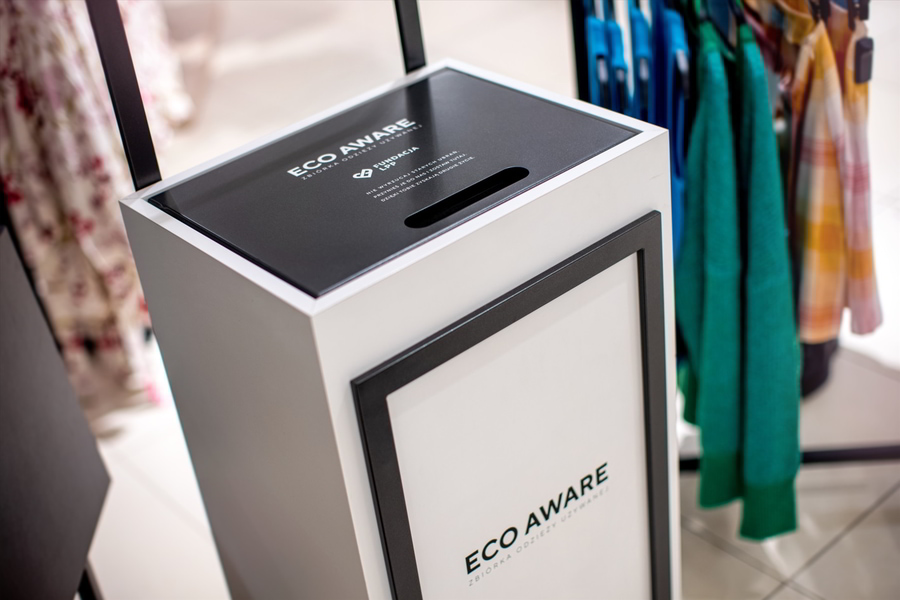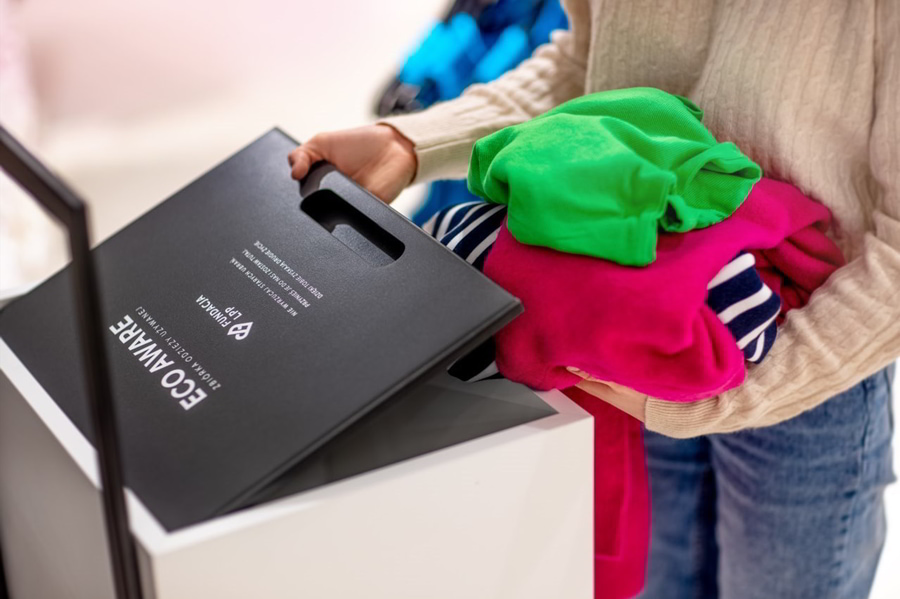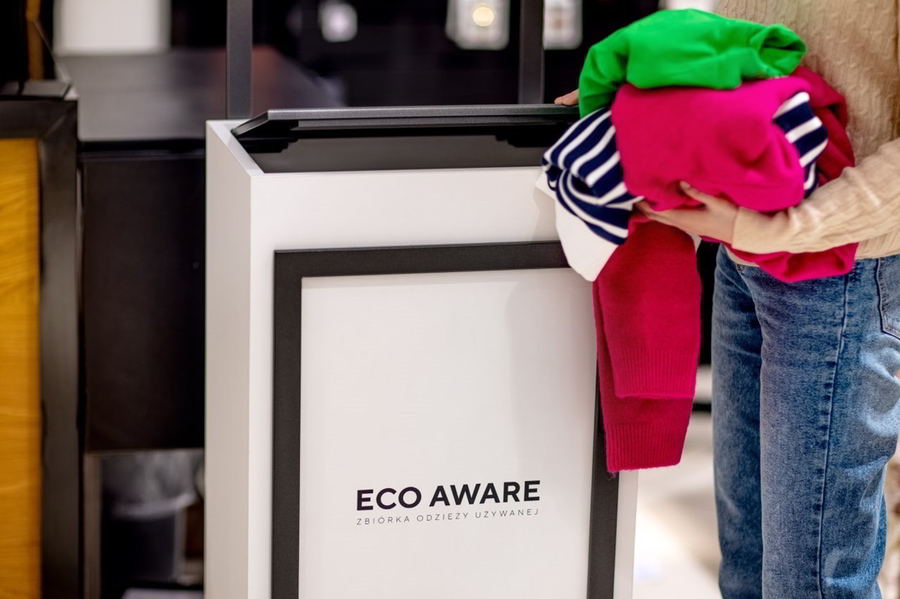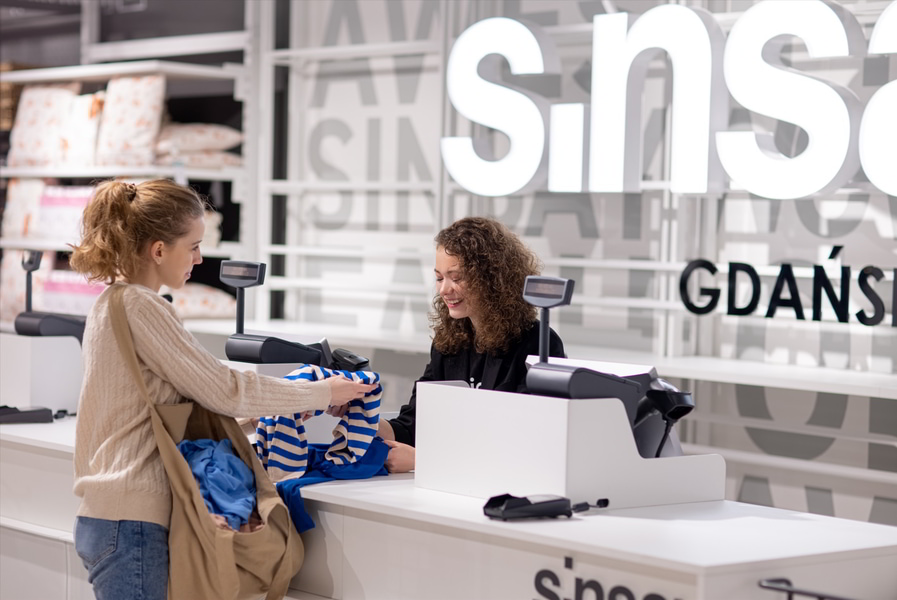LPP expands used clothing collection action to all of Poland
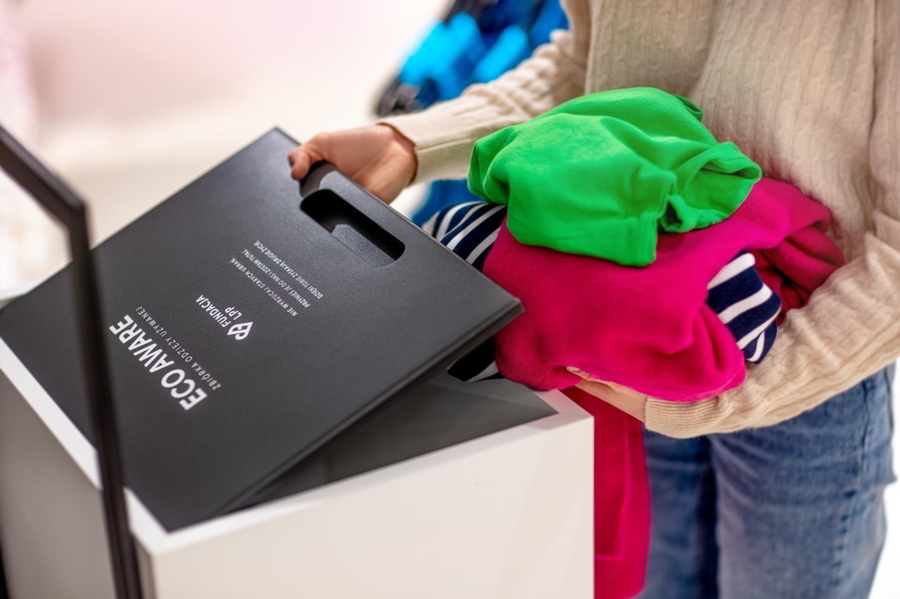
The second-hand clothing collection campaign conducted by the Gdańsk-based company since mid-2018 has increased its reach, already covering all LPP brand stores in Poland. Clothes with any label can now be donated in any of the nearly 1,000 Reserved, Mohito, Cropp, House, and Sinsay stores in the country. Clothing in good condition is donated to the homeless. The remaining clothes, in accordance with the idea of circular fashion, will go for processing becoming raw material for yarn production in the future, in line with the textile-to-textile idea.
LPP started collecting used clothing in mid-2018 to give it a second life in order to reduce textile waste while supporting people in need. Initially, the campaign was conducted in about 20 selected stores of the flagship Reserved brand, and after just one year – in response to great interest among customers – the company expanded the initiative to House and Mohito stores. By the end of 2019, the collection was being conducted in about 50 locations in most major cities across the country. Over the four-plus years of the campaign, LPP collected more than 12 tons of clothes, which were distributed through the St. Brother Albert’s Aid Society to people in difficult life situations.
– We consider the collection of used clothing and giving it a second life in this way as an important element that allows us to develop in a sustainable and socially responsible manner. By expanding the campaign to all stores in Poland, in each of our five brands, we will be able to act with greater efficiency in both spheres – environmental and social. We also intend to expand the campaign to other markets, where collections are expected to start by the end of 2023, and we are already looking for suitable partners there to enable us to do so – says Dorota Jankowska-Tomków, procurement and ESG director, LPP.
Currently, as part of the collection action, clothes of any brand can be brought to any of the nearly 1,000 LPP stores in Poland, left in specially marked containers or handed over directly to the store assistant. It is important that the items are in good condition and suitable for reuse. Importantly, even if some of the clothes turn out to be unsuitable for donation to the people in need, the company plans to reuse them anyway. Once the items get sorted and grouped into cotton and polyester garments, the Polish manufacturer intends to recycle them in the future using textile-to-textile technology. Already in 2022, the company partnered with Use Waste, a Polish start-up, which is developing an innovative technology for producing yarn from textile waste on behalf of the company. The company is planning further collaborations in this area, which in the next few years are expected to bring LPP closer to realizing a very important aspect of pro-environmental measures for the industry – namely the actual reduction of clothing waste.
– Thanks to cooperation with companies such as Use Waste, we can now work not only towards extending the life of clothes so that they become waste as late as possible, but follow the model of a closed-loop economy, where what was considered waste just a while ago is again treated as a resource. As a clothing manufacturer with a presence in the market for 30 years, we are aware that in the face of the current climate challenges, our role does not end with providing customers with clothing and accessories. By encouraging them to donate unwanted clothes, we want to take a step further on the road to realizing the idea of circular fashion – says Dorota Jankowska-Tomków.
The large-scale clothing collection campaign also means that there is a growing demand for handling the segregation process. This, in turn, has created another scope in the company’s cooperation with St. Brother Albert’s Aid Society (Gdańsk), this time within the framework of the “Sorting Room” project. The initiative, which has been implemented since 2022 at the Center for Social Integration in Gdynia, allowed for creation of workstations for the organization’s charges to sort clothing from collection actions.
– As the collection action grew in scope to include all stores across the country, the number of clothes to be sorted became a challenge. Hence came the idea to collaborate on the “Sorting Room” project. This multifaceted initiative, combining social and vocational activation, enables people at risk of exclusion to return to the labor market. Thus, by expanding the collection of clothing, we are also developing the spectrum of our other activities, responding to current needs in both the environmental and social spheres – says Patrycja Zbytniewska, CEO of the LPP Foundation.
__________________________________
LPP is a Polish family business and one of the fastest growing clothing companies in the region of Central and Eastern Europe. For 30 years, it has been successfully operating in Poland and abroad, offering its collections in such prestigious capitals as London, Helsinki or Tel Aviv. LPP manages five fashion brands: Reserved, Cropp, House, Mohito, and Sinsay, whose offer is available today in stationary and online stores in nearly 40 markets worldwide. The company has a chain of over 1800 stores with the total area of 1.5 million m2 and distributes clothing and accessories to three continents every year. LPP also plays an important role as it employs over 24 thousand people in its offices and sales structures in Poland, Europe, Asia, and Africa. The company is listed on the Warsaw Stock Exchange in the WIG20 index and belongs to the prestigious MSCI Poland index.


